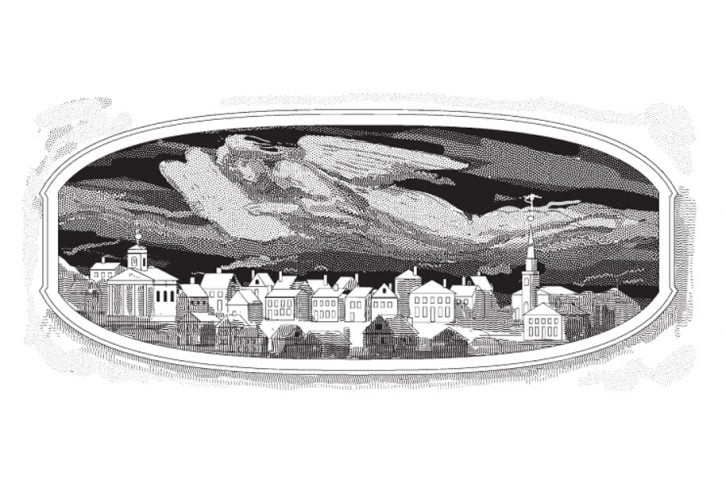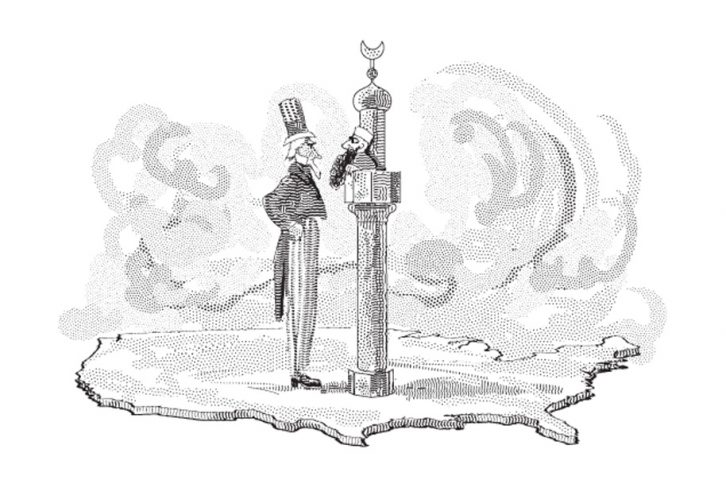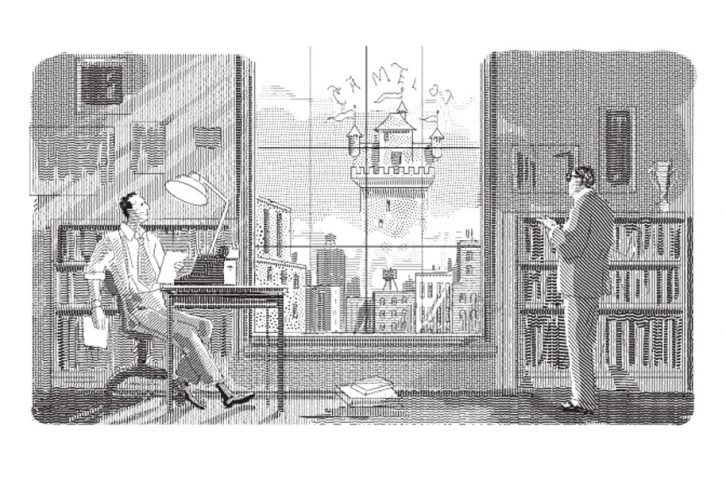Books discussed in this essay:
God of Liberty: A Religious History of the American Revolution, by Thomas S. Kidd
The Sacred Rights of Conscience: Selected Readings on Religious Liberty and Church-State Relations in the American Founding, edited by Daniel L. Dreisbach and Mark David Hall
The Forgotten Founders on Religion and Public Life, edited by Daniel L. Dreisbach, Mark David Hall, and Jeffry H. Morrison
Politics Reformed: The Anglo-American Legacy of Covenant Theology, by Glenn A. Moots
Republicanism, Religion, and the Soul of America, by Ellis Sandoz
Faith in Politics: Religion and Liberal Democracy, by Bryan T. McGraw
For much of the 20th century American historians thought of their discipline as a science. Like hard scientists they used empirical evidence to test hypotheses and worried about experimental error and self-deception. The method worked quite well for studying population history or rates of economic growth, but it proved inadequate for the history of religion because questions of faith defy objective, statistical analysis. These professional historians also tended to be less religious than the general population. Graduate school had taught them to approach documents skeptically, especially documents that claimed to be divine in origin. The more they studied horrible acts undertaken in God's name, religious wars, and historical-critical approaches to the Bible, the harder they found it to retain an uncritical faith. At the same time, however, they noticed that although religion was steadily declining in Europe, it persisted in the United States. Two events within their profession and one outside it underlined religion's enduring importance.
The first event was the publication of Perry Miller's The New England Mind: The Seventeenth Century (1939). Though he was an atheist, Miller challenged the early 20th-century's tendency to denigrate the nation's Puritan origins. H.L. Mencken had famously defined Puritanism as "the haunting fear that someone, somewhere, may be happy." Miller's exhaustive study of the first three generations of Puritan intellectuals demonstrated to the contrary that they were neither killjoys nor bigots. He depicted them as thoughtful, dedicated men, the originators of many aspects of the nation's identity. Readers of Miller's great work and its sequel, From Colony to Province (1953), were forced to reckon with Christianity not as a pathology or delusion but as a defining force in American history.
The second event was the publication of George Marsden's Fundamentalism and American Culture (1980). In the 1950s, '60s, and '70s, Miller's many students and disciples had made a distinction between an intellectually rich mainline Protestantism, descended from the Puritans, and an intellectually feeble evangelicalism. Marsden's dazzling analysis of the fundamentalist intellectual tradition of the late 19th and early 20th centuries made this distinction untenable. You may not like the fundamentalists, he told his colleagues in effect, but they played a significant role in 19th- and 20th-century American history. Although they worked from different premises than mainline Protestants, they too were rigorous thinkers.
In an unusual afterword, Marsden went on to avow his own Christian faith and to insist that although historians' professional work was to chart and explain changes in cultural forces, they ought not to assume that history consists of nothing else. On the contrary: "We live in the midst of contests between great and mysterious spiritual forces, which we understand only imperfectly and whose dimensions we only occasionally glimpse. Yet, frail as we are, we do play a role in this history, on the side either of the powers of light or of the powers of darkness."
The high quality of his work, disclosing a world few secular historians had even noticed hitherto, encouraged them to subject their own assumptions to more rigorous tests and raised the possibility that writing history might itself be a religious act. Marsden became the center of a circle of like-minded historians, notably Mark Noll, Grant Wacker, and Nathan Hatch—masters of the academic style and practicing evangelical Christians, too. So far as I know, however, they have not been able to overcome the obvious obstacle to writing history religiously, i.e., the fact that God's will and actions cannot be verified and footnoted. They certainly do not mean to revert to the old 17th-century idea of "special providences," whereby each thunderstorm or miscarriage was interpreted as a particular expression of God's righteous anger against a sinful community.
Religious Revolution
The external event that accompanied these two shifts in historical study was the end of the Cold War and the death of Communism. The fact that faith outlasted the great atheist ideology that had tried to crush it once and for all concentrated historians' minds on religion. By now the effects of these three events have been thoroughly institutionalized. Religious history is a flourishing component of American historical scholarship, constantly raising new questions and encouraging subtler interpretations of events that once appeared settled.
The American Revolution is a case in point. Revolutionary history, like the field of religious history, has experienced great changes over the last century. We are approaching the centenary of Charles Beard's Economic Interpretation of the Constitution of the United States (1913), a sensation in its day because it knocked the Founding Fathers off their ceremonial plinth by claiming that they had been motivated mainly by low pecuniary interests. Fifty years later a generation of historians reacting to Beard had repaired much of the damage, reasserting the founders' high motives but painting the Revolution as a thoroughly pragmatic event, a triumph of secular political ideology. Another 50 years has contributed to more revisionism, and now the events of the 1770s and 1780s shine in a more godly light.
Thomas Kidd, in God of Liberty, makes a powerful case for the Revolution as an event as much religious as political. Agreeing with a wide consensus that George Washington, Thomas Jefferson, Benjamin Franklin, Thomas Paine, and other central figures were Deists who doubted the inerrancy of scripture and denied the divinity of Jesus, he shows how they nevertheless collaborated with zealous evangelical Christians to defeat Britain and create a republic. What's more, they understood their work as having divine as well as secular significance, and they worked against a backdrop of millennial enthusiasm as end-of-the-world sects sprang up around them.
Despite their many differences, Kidd notes, nearly all the revolutionaries shared five religious principles. First, they believed in a creator God who made all men equal and therefore free, possessing the same basic rights. Second, they agreed that God moved through history and sometimes made nations His providential instruments. Third, they agreed that there is a deep human propensity to sin that must be checked by the right institutions. Fourth, they believed that even with these institutions the republic would only succeed if men conquered the temptation to sin and acted virtuously. Finally, they favored religious liberty. Agreement on these fundamentals enabled them to cooperate despite striking differences on theological questions. "During and after the Revolution," Kidd writes, "many people conflated America's political affairs with divine purposes, which lent an aura of redemptiveness to the war and to the agenda of a fledgling nation."
Bernard Bailyn, J.G.A. Pocock, and other historians have emphasized the classical and English republican traditions that were central to the founders' education, and their debts to the French and Scottish Enlightenment. Kidd adds that these intellectual influences fit comfortably with the lessons of Christianity, especially in emphasizing the need for virtue. The Great Awakening of the 1740s had intensified Americans' sense of spiritual independence and created in them a willingness to challenge established authorities and stand up to the threat of tyranny. The Awakening had also exhorted them to live according to higher standards of personal conduct. They were primed, by the early 1770s, to see the religious and political threats posed by Britain as indistinguishable.
Kidd notes the irony that, in at least one respect, their religious intolerance was important. Most of them hated Catholics. Ever since the Reformation, Catholicism had been synonymous throughout most of the English-speaking world with tyrannical power, the Spanish Inquisition, superstition, and idolatry. Accordingly, few British actions aroused the colonists' fury more than the Quebec Act of 1774, which gave religious freedom to Catholic French Canadians, who had become citizens of the British Empire at the end of the French and Indian War in 1763.
Some members of the first Continental Congress saw the Quebec Act not as a sensible, pragmatic response to the needs of a large conquered population (which it was) but as a prelude to the establishment of "popery" in the colonies. Already alarmed by plans for the introduction of Anglican bishops, they were primed to interpret the act as fulfillment of their worst fears—not merely bishops, but a complete counter-Reformation! Once the war had begun, however, General Washington gave stern orders against anti-Catholic agitation in the Continental army, and the Catholic minority supported religious freedom at the war's end.
Kidd offers good summary chapters on military chaplains, religion and the concept of equality, the spiritual aspect of the slavery question, and the drafting of religious liberty laws. His book culminates in a discussion of the First Amendment to the new Constitution in 1791. If his book has a weakness, it is its tendency to scant the Loyalists, who are treated in only a few brief remarks. In this regard, he stays true to a long tradition in American historiography. No one would think of writing a history of the American Civil War without saying as much about the Confederacy as about the Union. But nearly every Revolutionary historian writes as though the Loyalists, a large percentage of the colonies' population, did not exist, did not matter, or don't deserve attention because they ended up on the losing side. The next task for historians of the United States is to set right this strange omission.
Freedom of Conscience
Daniel Dreisbach and Mark David Hall take the same general approach as Kidd. Their documentary anthology The Sacred Rights of Conscience, has the dimensions and heft of a New York phone directory, and illustrates its themes in exhaustive detail. The editors note in their introduction that the colonies began early to exhibit religious diversity and at first resorted to the age-old expedient of persecution. For example, the first four Quakers to arrive in Boston in the late 1650s were publicly hanged, and their friends were driven out of the colony. Gradually, however, the sects learned to cooperate and accommodate one another, especially in Pennsylvania and Maryland, the colonies that pioneered the practice of religious freedom on this side of the Atlantic.
By the 1770s the sheer fact of religious diversity, which continued to proliferate, encouraged a new approach, first to toleration, and then to outright religious freedom. Dreisbach and Hall agree with Kidd that the Revolution was carried out by "an unlikely coalition of religious dissenters, nonconformists, and moderate Enlightenment rationalists" whose agreement on the need for virtuous citizens and civil peace outweighed their religious differences. "Religion, and the virtue it fostered, was more important for a free, self-governing people than, perhaps, for any other society." The editors offer dozens of documents in support of every contention and show that the early republic enjoyed a vigorous and varied religious life, in public as well as private places. Even unorthodox men like President Jefferson were willing to permit church services in Washington's new Capitol building.
Dreisbach and Hall are also the editors (with Jeffry H. Morrison) of The Forgotten Founders on Religion and Public Life. Dreisbach remarks that membership in the pantheon of leading founders has changed over the last two centuries, with some figures sinking and others rising in step with national events (Hamilton's reputation enjoyed a big revival during the Civil War, and Jefferson's in the 1930s). Although the men currently regarded as preeminent were Deists, most of the revolutionary leaders whose names we hear less often were more orthodox Christians.
Essays on two Connecticut politicians, Oliver Ellsworth (by William Casto) and Roger Sherman (by Mark Hall), underline the point, showing that pious, orthodox Puritans had a major role to play in the events of the 1770s and 1780s. Ellsworth supported the established Congregational Church in Connecticut before and after the Revolution (at a time when the First Amendment merely precluded Congress from establishing a religion, while leaving states free to decide for themselves). When the state's Baptist minority petitioned to dismantle the establishment in 1803, Ellsworth "reportedly threw their petition under the table, put his foot on it, and declared, ‘This is where it belongs.'" It seemed obvious to him that righteous rulers had a duty to "foster the Christian religion as a counter to man's natural depravity." Yet this was the same man who drafted the establishment clause of the First Amendment and believed as strongly as Jefferson in freedom of conscience. Casto ably guides readers through these apparent contradictions.
Almost Chosen People
While Kidd, Dreisbach, and Hall give us the nuts and bolts of this history, Glenn Moots singles out a particular element of the Reformation tradition: the covenant. In Politics Reformed: The Anglo-American Legacy of Covenant Theology, he argues that the most distinctive characteristic of the Judeo-Christian religions is that God has a will, has clear ideas about the duties of His chosen people, and that He enters into covenants with them. This means that Judeo-Christian theology is inextricably mixed with politics—God wants men to live in certain ways. He made covenants with Noah, Abraham, and Moses, imposing duties on Himself as well as on the Children of Israel.
According to Protestant intellectuals, the early Church inherited the Jews' covenant with God when the Jews failed to recognize Jesus as the promised Messiah. Protestants in turn inherited this relationship during the Reformation because the Catholic Church had become decadent. Puritan divines in the New England colonies also understood their civil arrangements as covenants connecting themselves with God and with one another. Revolutionary-era preaching relied heavily on covenant themes, for example the religious duty to rebel against tyrants. King George III of England could lose God's favor just as King Saul of ancient Israel had lost it.
By the 1770s, a generation of revivals and the development of Deism had enlarged the repertoire of arguments available to Revolutionary preachers. Themes from covenant theology would often blend with arguments from the classics, from the legal scholars Coke and Blackstone, and from political theorists like Algernon Sidney and John Locke. Moots reminds us that, though he is often interpreted as an entirely this-worldly philosopher, Locke was adept in religious argumentation. "Social contract theory," Moots writes, "is seen only in retrospect as ‘liberal.' New England clergy readily summoned it as consistent with, if not derivative of, their political theology."
Secularization
Each of these authors asks how faithfully the republic has adhered to the founders' intentions, and how compatible republican government is with religiosity. For the most part they agree that we have witnessed a sharp and regrettable secularization in the last half century, creating something close to what Richard J. Neuhaus deplored as the "Naked Public Square." In a 1984 book by that name, Neuhaus argued that the Supreme Court had misread the First Amendment, barring religious speech from the public arena and creating a split between religion and politics that the framers had never intended.
No one feels more indignant about the secularization of politics than Ellis Sandoz, a distinguished political scientist at Louisiana State University. The first four essays in his Republicanism, Religion, and the Soul of America make a persuasive case for the idea that the individualism we cherish today is the product of 18th-century theology (notably that of John Wesley, Jonathan Edwards, and George Whitefield) rather than of the Enlightenment. Sandoz argues that our individualism has enabled Americans to blend citizenship with spiritual aspiration, protecting us from the "the ideological and eschatological maladies that have ravaged the modern world."
Another political scientist, Bryan T. McGraw, notes that contemporary liberal political orthodoxy favors the separation of religion from politics, and expects the most secular democracies to be the most stable and most respectful of human rights. But is that true? Bringing a welcome comparative perspective to the subject in Faith in Politics, he surveys the history of religious political parties in the democracies that grew up throughout Europe in the late 19th and early 20th centuries. He shows that in nearly every case they contributed to political stability and staved off religious persecution without risking theocracy. The German Catholic Center Party, for example, gave political representation to citizens whose religious liberties were threatened by Bismarck's Kulturkampf.
Center Party voters understood that their representatives would have to operate in the pragmatic, secular realm of parliamentary politics, cheek by jowl with delegates from other parties whose aims and worldviews were quite different. Because they didn't force their religious views on others, they strengthened Germany's fledgling democracy. Comparable religious groups in Belgium, Austria, and the Netherlands built "a very successful network of unions, newspapers, farmers' cooperatives and political parties united by a common religious identity, creating what amounted to an alternative set of civil societies." It was the ultimate collapse of these religious parties—not their long duration—that undermined European democracy in the 1930s. The implication for contemporary American politics is clear. Religiously motivated groups, even those whose faith is the organizing principle of their lives, should be welcomed in the political arena so long as they restrain themselves from pressing theocratic claims.
These six books bear witness to the vitality of religious history and to its practitioners' willingness to revisit apparently settled questions. Their authors take religion seriously but they are equally attentive to the principles of rigorous historical study. They stand on the shoulders of the best 20th-century historians of the United States who reclaimed religion as an issue of central concern in American history. Even so, none of them takes up George Marsden's challenge by attempting to make claims about exactly how God operates in history. As a result their work remains accessible to readers from every point on the religious and political spectrum.



